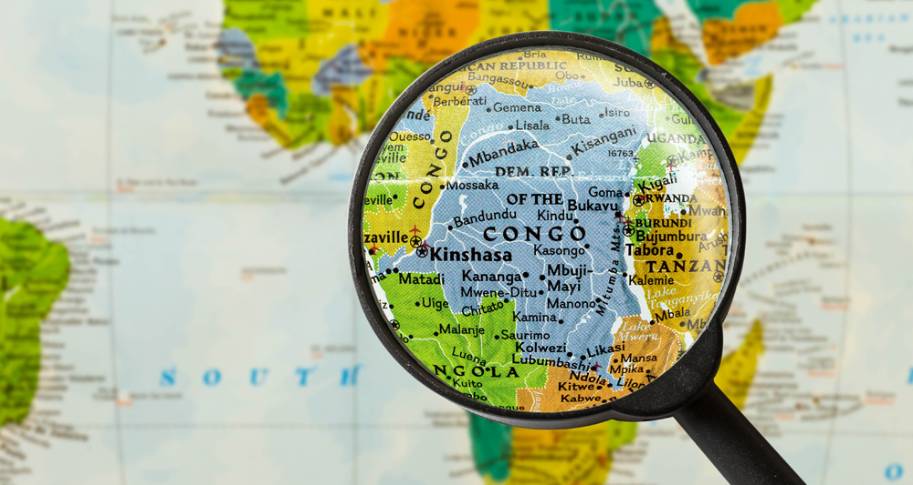Child Labor and Corruption in the Congo. 2 Tips to Ensure Your Supply Chain Has Integrity

July 8, 2020 | By Cindy Moehring
What do tech giants Apple, Microsoft, Tesla, Alphabet and Dell have in common with the Congo?
Cobalt.
A full two-thirds of the world’s supply of cobalt is found in the Congo, and tech companies need it to make the lithium-ion batteries in phones, computers and almost every other rechargeable gadget.
According to Darton Commodities, a cobalt trading company in London, in 2020 the global demand for cobalt will increase 30% over 2016 levels and it is expected to keep rising. The increase in demand is occurring primarily because automakers such as Tesla are ramping up their electrification plans. The amount of cobalt needed for a car battery is much greater than that needed for a phone or other small rechargeable device.
Given the pandemic and the effect it has had on global commerce, I expect we might not see a full 30% rise this year. As the economy comes back, however, the demand for cobalt will rise, as well. And that could be bad news for the children of Congo.
Make that “more” bad news.
Most of the available healthcare resources in the Congo are being diverted to help address the COVID-19 crisis, which means fewer resources are available for millions of children in the country who are affected by killer diseases such as malaria, polio and measles. Not only are the medical services ill-equipped and underfunded, at least half of the facilities don’t even have safe drinking water. So, the pandemic is adding stress to a country that is already battling many other serious problems, including poverty, corruption and child labor.
And that brings us back to cobalt.
In December 2019, those five tech giants were sued in Washington, D.C., by an international advocacy group that claims the companies’ suppliers are using child labor to mine cobalt in the Congo. The conditions have been described as extremely dangerous and unregulated. The children, some as young as 10, were purportedly working 12-hour days, digging and hauling sacks of rocks rich with cobalt. The work has allegedly resulted in some children suffering very serious injury or death. The plaintiffs are seeking damages for the alleged victims and have asked the court to order the companies to set up a fund to help the children receive medical care.
Child labor occurs when children below the legal working age in a country are forced to work. Avoiding forced labor is one of the basic principles for the practice of business ethics. If a company wants to create trusting stakeholder relationships and operate effectively, then all types of forced labor, including child labor, should be avoided.
Most of the tech companies have said they are cracking down on their supply chain partners, with Apple leading the way. It claims it has tracked every smelter providing cobalt and that 100% of them regularly submits to independent third-party audits. And all of the companies have a supplier code of conduct that prohibits the use of child labor.
If that’s the case, then why does child labor occur in some situations? Tesla’s response to CNN in 2018 during its investigation into child labor in the Congo sheds some light on the question. Tesla told CNN they were “unable to fully trace out their supply chains due to what they described as the complex nature of sourcing the precious metal.”
Supply chains can be very complex in our globally interconnected world. And forced labor sometimes exists very far back in supply chain, especially when you are talking about a finished product with many parts. In this case, cobalt is one mineral in a battery that goes into a car that has millions of parts! Yet it’s the tech giant at the end of the chain (and its brand) that takes the reputational hit. These companies are seen as being ultimately responsible.
The examples here highlight the need to monitor your supply chain for integrity. Having a supplier code of conduct that prohibits forced labor is important, but that alone is not enough. Companies need transparency and visibility throughout their entire supply chain to ensure integrity. And the information must be verifiable and trustworthy.
This is where technology and the element of surprise can provide some benefit. Your foundation is a clear company policy prohibiting forced labor. Then, to ensure integrity in your supply chain, consider employing the following two practical tips:
- Use technology, such as blockchain, to track your supply chain monitoring efforts. It creates secure, verifiable transparency throughout a supply chain.
- Do some unannounced audits. Third-party audits are good, but they are better if some are unannounced. And conduct a few of them yourself so you have first-hand information.

